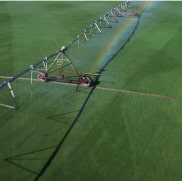Summertime means the arrival of the season’s normal insects and diseases and some more unusual plant health issues. Plants become more susceptible to insect and disease damage when they are under stress – like the extreme heat of our current summer and the lack of rain from this spring.
To help you determine the appropriate steps for garden pest control, our plant health experts have fielded many questions about garden pest control and reviewed customer samples these last few weeks. Using your questions and feedback, we’ve created the ultimate guide to the best pest control for your yard, including some of the most common issues they’re seeing in the garden.
Aphids
Aphids seem to be on everything this year and are still going strong. As the most common insect in the garden with many species, you’re sure to have dealt with them in your garden. They attack buds and new growth, cause leaves to shrivel, and create honeydew which is a shiny sticky substance on the leaf. Ants are attracted to the honeydew for nutrition – if ants are moving over leaves and/or stems – it would be wise to check for aphids.
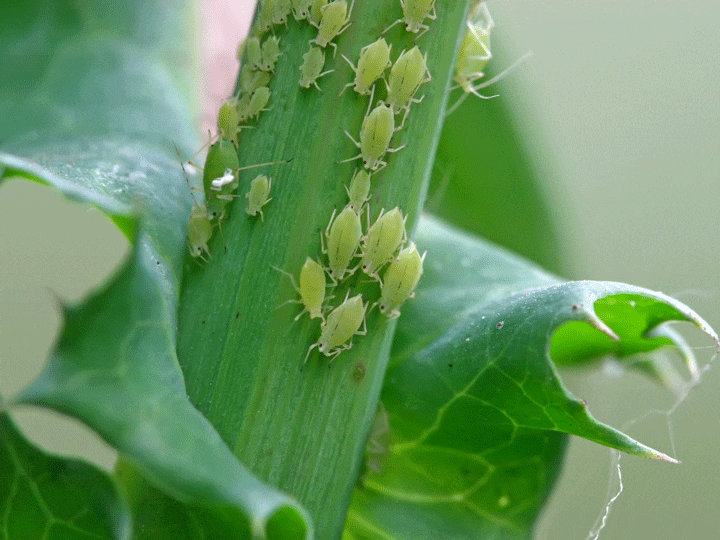
Treatment Options:
There are many predators of aphids to help control the population and keep it from becoming an infestation. Insecticidal soap and pyrethrins are ideal organic control options if plants need to be treated.
Bagworms
Bagworms are now appearing in the summer garden. They are typically found on arborvitae, juniper, pine, spruce, and some trees. The caterpillars feed on needles and leaves and are overlooked until they form their bag, hence their name, bagworm. They overwinter in their protective bag producing hundreds of caterpillars that emerge next spring.
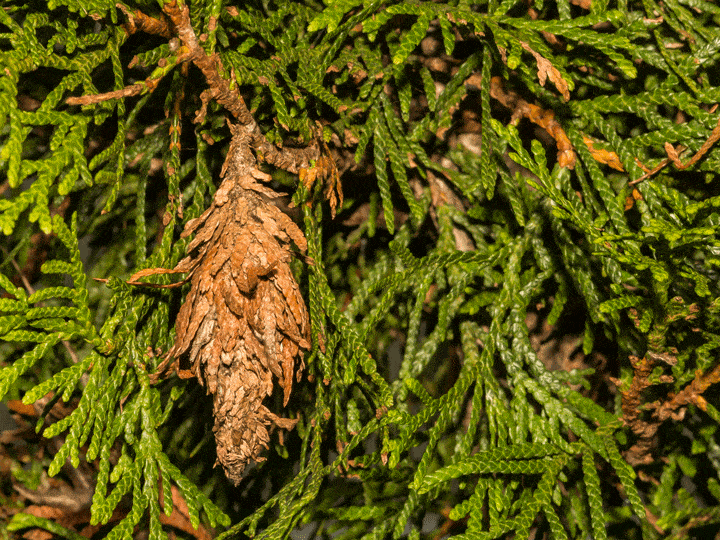
Treatment Options:
The best bagworm treatment and method of pest control for bagworms is handpicking the caterpillars and/or bags. If you need to spray, utilize Bt (Bacillus thuringiensis) in mid to late June while caterpillars are young. The bags can repel chemicals by fall, making spray treatments ineffective.
Japanese Beetles
Japanese beetles are not as prevalent as in previous years but are still around. The primary indicator of their presence is the skeletonization of leaves of many plants by eating between the veins. Japanese beetles also feed on flowers and fruits but the damage they cause is only cosmetic. Their life span is six weeks from mid-June to August.
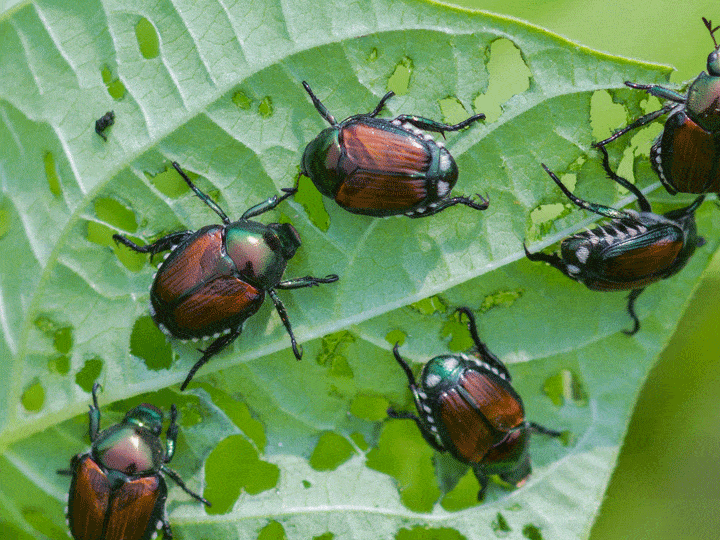
Treatment Options:
The best form of Japanese beetle control is handpicking or spraying a contact insecticide while they are active.
Leaf Gall
Leaf Galls always surprise people and are an eyesore but they are harmless. Galls are growths on leaves, flowers, and twigs caused by various insects feeding or laying eggs. Wasps, mites, and aphids irritate the cells of the plant, and galls form as a response to the insect’s salivary secretions. Galls can sometimes also be caused by a fungal infection.
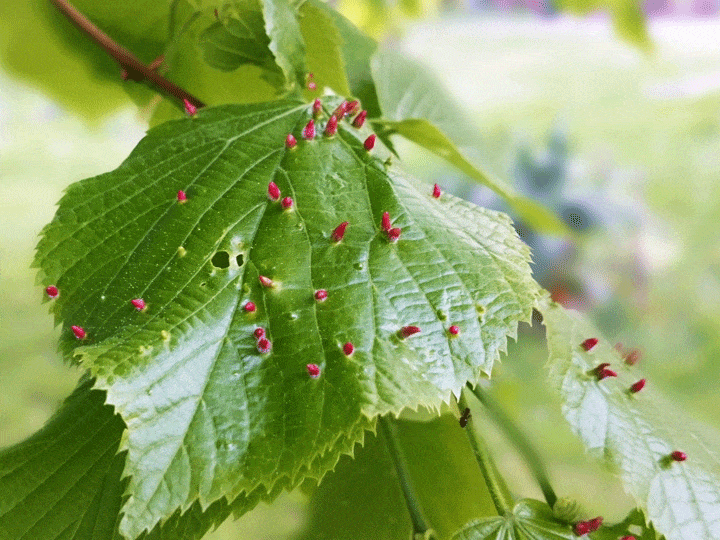
Treatment Options:
The best method of leaf gall treatment is to leave them alone. Galls are cosmetic and cause no harm to the plant. No control is needed.
Powdery Mildew
You may have noticed powdery mildew on roses in the garden. Powdery Mildew attacks during wet springs and humid summers, and the summer garden has undoubtedly seen its share of humidity this year. A white powdery fungus that affects many plants, especially in wet, shaded areas. Infected leaves eventually turn yellow, shrivel, and die.
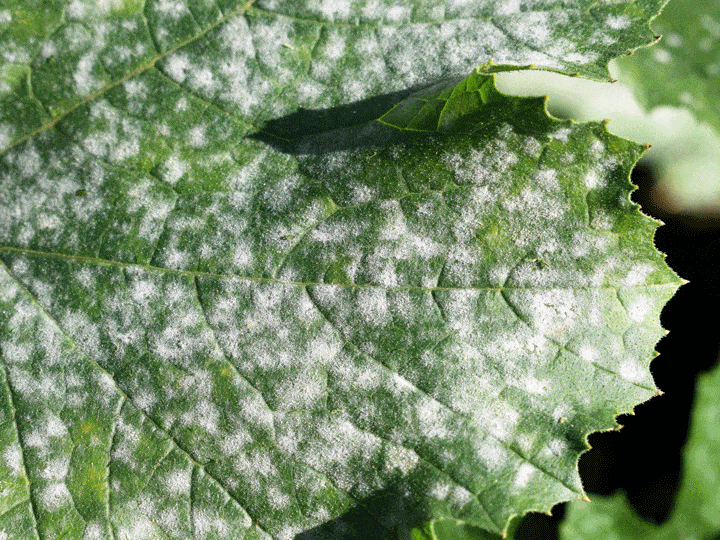
Treatment Options:
The best powdery mildew treatment is to catch it early. When the infection is detected early, you can control it with copper fungicide. The best tactics to prevent infection are to keep plant leaves dry, the plant in sunlight, and spaced correctly for abundant air movement.
Southern Blight
Southern Blight is rare although our plant health team has seen three cases this year. Plants can wilt, collapse, and die rapidly from this fungus, active only in the hottest summer months. The soil will show a white mold (mycelium) and decay of the stems.
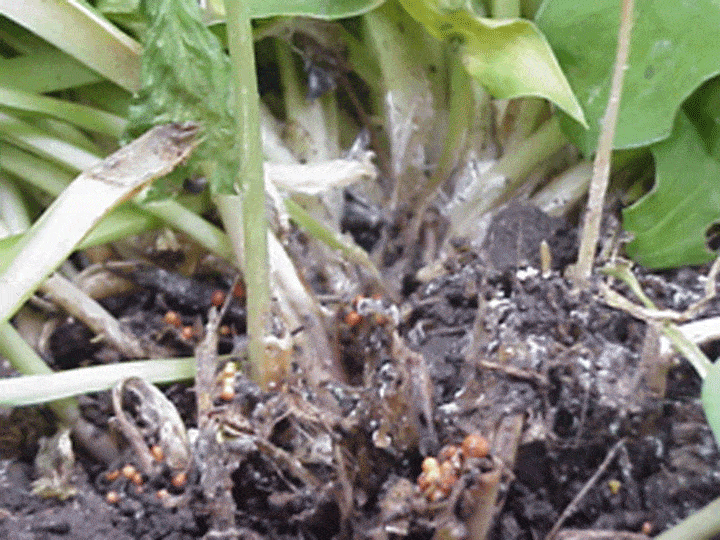
Treatment Options:
The ideal southern blight treatment is soil sanitation. Entirely replacing the soil, or using a raised bed may help stop the spread of the disease. Also, be careful not to overwater during sweltering days.
Tomato Mosaic Virus
Our staff has seen a few samples of the Tomato Mosaic virus in the summer garden this season, including tomatoes from one of the staff’s gardens. Ordinarily, the fruit does not show any marked disfiguration but both the number and size of the fruit are reduced. TMV is highly infectious, spreading quickly by persons touching a healthy tomato plant after touching an infected plant. When performing cultural practices – pruning, watering, tying, harvesting – disinfecting all tools and materials, and washing hands are crucial to prevent the spread from one plant to another. Tobacco users should wash their hands before handling tomato plants.
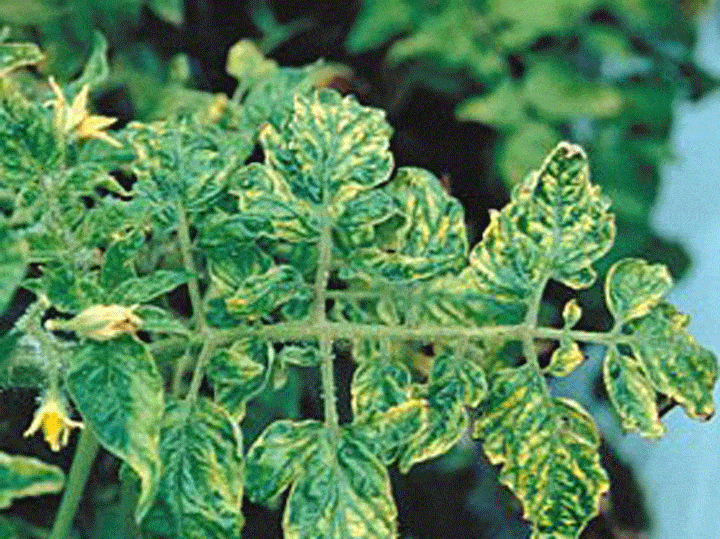
Treatment Options:
Do not grow tomatoes next to crops such as potato, pepper, or vine crops. The best tomato mosaic virus treatment is to control aphids as they may transmit the virus. No chemical controls are available. Destroy all affected plants to remove the infection from the garden.
Figure Out What Pests Are in Your Yard and How to Treat Them
Keep your landscape and garden healthy this summer with the help of Lurvey’s high-quality products and team of experts. Whether it’s a typical issue like aphids and Japanese beetles or something less common like Tomato Mosaic Visus, our plant specialists and health care team are here to help you succeed and create a beautiful summer garden.
Lean on their years of experience to answer any questions you might have. Contact us and utilize our PlantRx form HERE or bring samples into the store for us to look at.






